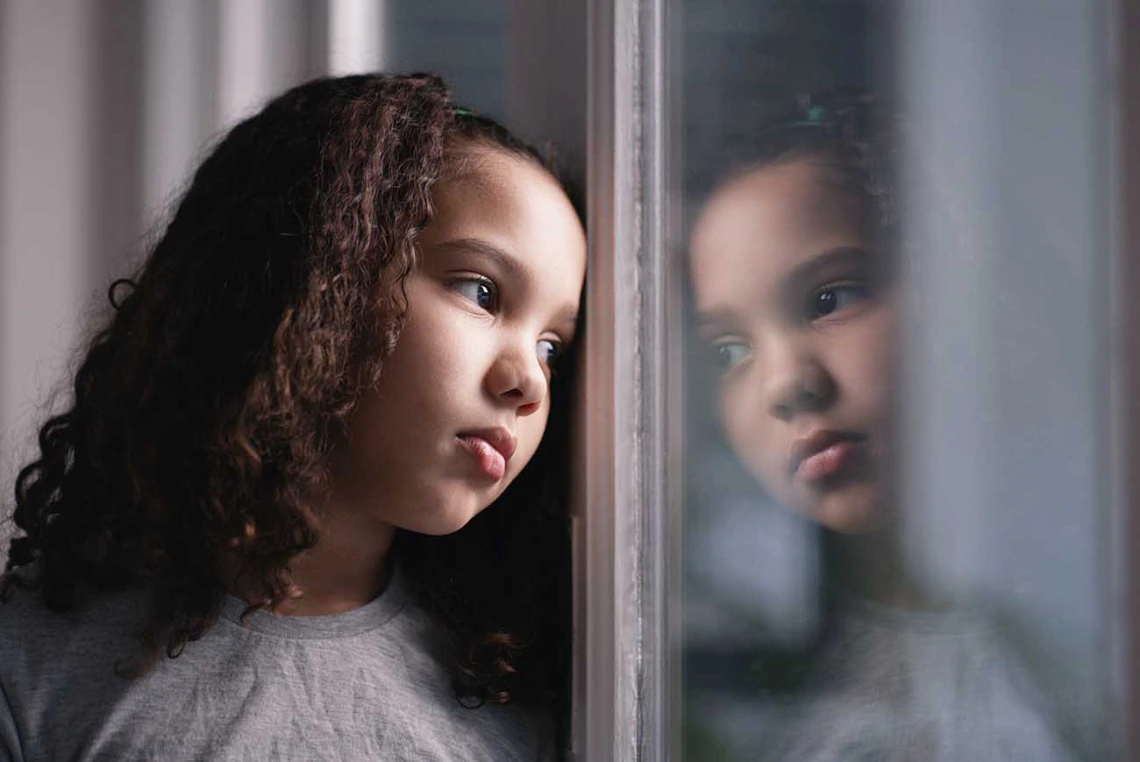Busting myths: Understanding children’s mental health
Saira Kalia, MD, and Jacquelin Esque, MD, co-directors of the Arizona Pediatric Psychiatry Access Line, dismantle common myths surrounding children’s mental health.

In honor of Children’s Mental Health Awareness Week, it is crucial to debunk some common myths surrounding children’s mental well-being. Despite increasing awareness, misconceptions persist, often hindering effective support and understanding. Let’s break down these myths and shed light on the truths behind children’s mental health.
Myth 1: Children are not susceptible to mental health issues.
Reality: Contrary to popular belief, children can indeed grapple with mental health challenges. These difficulties can manifest in various forms, including anxiety, depression, attention-deficit/hyperactivity disorder and more. Disregarding these concerns can have lasting repercussions on a child’s growth and well-being.
Myth 2: Children will naturally outgrow their mental health problems.
Reality: While some children might experience improvements in their mental health as they age, this is not a guaranteed outcome. Without proper intervention and support, these issues can persist into adolescence and adulthood. Early identification and intervention are critical for effectively addressing and managing children’s mental health concerns.

Mental health issues are more common in children than many people realize. Recognizing the prevalence of these issues is essential for providing adequate support and resources.
Myth 3: Discussing mental health will exacerbate children’s anxiety or depression.
Reality: Open communication about mental health can actually have the opposite effect. Encouraging dialogue about emotions and mental well-being fosters a supportive environment where children feel comfortable expressing themselves. It also helps diminish stigma and encourages seeking help when necessary.
Myth 4: Children’s mental health issues are just a phase and don’t require professional help.
Reality: Mental health issues should never be dismissed as a phase. Professional help, such as therapy or counseling, can provide children with the tools and support they need to cope and thrive. Early intervention can prevent problems from escalating and improve long-term outcomes.

Children can experience mental health issues, and when they do, it is crucial to acknowledge and support them.
Myth 5: Children with mental health issues are just seeking attention.
Reality: Mental health issues are not attention-seeking behaviors. They are legitimate concerns that require understanding and support. Dismissing a child’s struggles as mere attention-seeking can exacerbate their condition and undermine their need for help.
Myth 6: Good parenting can prevent children from developing mental health issues.
Reality: While supportive parenting can certainly contribute to a child’s overall well-being, mental health issues can arise due to various factors, including genetics, environmental stressors and neurological differences. Blaming parents for their child’s mental health struggles only adds to the stigma and guilt surrounding these issues.

(From left) Jacquelin Esque, MD, and Saira Kalia, MD, co-directors of the Arizona Pediatric Psychiatry Access Line, dismantle common myths surrounding children's mental health.
Myth 7: Children’s mental health problems are rare.
Reality: Mental health issues are more common in children than many people realize. According to the Centers for Disease Control and Prevention, approximately 1 in 6 U.S. children age 2 to 8 has a diagnosed mental, behavioral or developmental disorder. Recognizing the prevalence of these issues is essential for providing adequate support and resources.
Children’s mental health is a vital aspect of their overall well-being, and it is crucial to separate fact from fiction when addressing these issues. By debunking myths and fostering understanding, we can create a more supportive environment where children feel empowered to seek help and thrive emotionally. Let’s continue to raise awareness and prioritize children’s mental health every week, not only during designated awareness campaigns.
About the Authors
Saira Kalia, MD, is an associate professor of psychiatry and the director of the Arizona Perinatal and Pediatric Psychiatry Access Lines. Dr. Kalia is a distinguished perinatal psychiatrist and educator with extensive experience in clinical care and administrative leadership at Banner University Medical Center, where she previously served as Medical Director for Outpatient Psychiatry and Associate Program Director for the Adult Psychiatry Residency Program. Dr. Kalia's notable achievements in perinatal psychiatry include launching the Psychiatry Department's Perinatal Psychiatry Training Track and Clinical Service. She provides national trainings for Postpartum Support International (PSI) and has contributed significantly to the National Curriculum of Reproductive Psychiatry and the American Psychiatric Association's Textbook of Women's Reproductive Mental Health. She has been indispensable in the launch of the Arizona Perinatal Psychiatry Access Line and is now working to launch the Arizona Pediatric Psychiatry Access Line.
Jacquelin Esque, MD, is a clinical assistant professor of psychiatry, an experienced child and adolescent (CAP) psychiatrist and the clinical director of the Arizona Pediatric Psychiatry Access Line. She graduated from the University of Pittsburgh Medical Center’s psychiatry residency and child and adolescent psychiatry fellowship. She has clinical practices in psychiatry at BUMC-S and maintains a supervisory/educational role for psychiatry residents within the Department of Psychiatry.Dr. Esque is passionate about increasing access to quality mental healthcare for children and teens. In her clinical practice, Dr. Esque has seen the value of working closely with pediatricians and other primary care providers in the community, to collaborate and help provide education, resources, and treatment ideas. Dr. Esque is a crucial part of the launch of the Pediatric Psychiatry Access Line and brings her significant clinical expertise to this venture.

